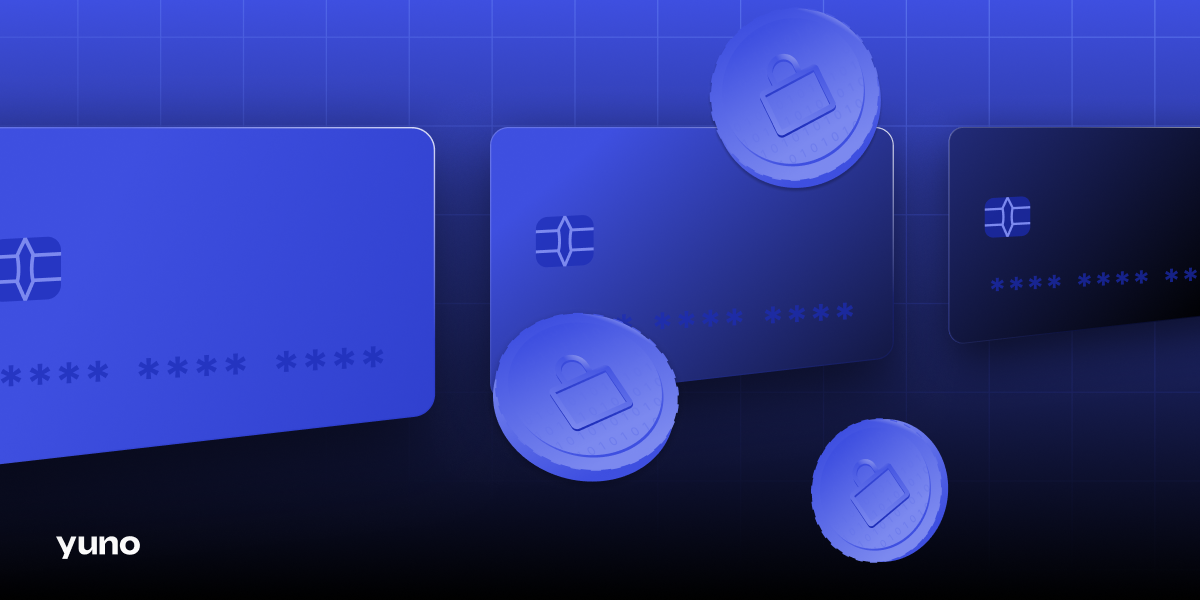Payment tokenization standards: ensuring security and interoperability across platforms
.png)
The digital payment landscape is evolving quickly, and securing transactions across different platforms is more important than ever. Payment tokenization is a key strategy for safeguarding sensitive information by replacing it with unique tokens, ensuring secure transactions across various systems.
Understanding payment tokenization
What is payment tokenization?
Payment tokenization is a security technique that replaces sensitive payment information, such as credit card numbers, with a unique token. This token maintains the necessary payment details but does not expose the actual card information, thereby protecting data during transactions.
How tokenization works
- Token generation: At the start of a transaction, the payment processor creates a unique token to replace the actual card information.
- Token storage: The token is stored securely, while the original data is kept in a safe, encrypted vault.
- Token usage: The token is used to process the transaction, ensuring that sensitive information remains secure.

Importance of payment tokenization standards
Enhancing security
Tokenization significantly reduces the risk of data breaches and fraud by ensuring that sensitive payment information is never transmitted or stored during transactions. In 2023, the average cost of a data breach jumped to USD 4.88 million, a 10% increase driven by lost business and post-breach activities such as customer service and regulatory fines.
Organizations using tokenization and other advanced security measures, like AI, saw significant cost savings—up to USD 2.2 million less in breach costs compared to those without these technologies. Tokenization keeps sensitive data in a secure vault, reducing exposure to unauthorized access and mitigating the impact of the ongoing cyber skills' shortage.
Facilitating interoperability
Standards in payment tokenization ensure that tokens work smoothly across different platforms. This interoperability is essential for maintaining a consistent and secure payment experience. For instance, standardized token formats allow a token generated by one system to be recognized and processed by another, ensuring seamless cross-platform transactions.
Providing seamless user experiences
Tokenization simplifies payments by enabling fast, secure transactions without the need to repeatedly enter sensitive information. This efficiency improves the checkout process, making it quicker and more convenient. With instant payment methods, satisfaction rises by 11%, and customers are nearly twice as likely to remain loyal once payments are approved.
Key tokenization standards
EMVCo payment tokenization specification
EMVCo, formed by major credit card companies, developed a set of tokenization specifications that ensure consistent practices across different payment networks. These standards promote interoperability and security through rigorous measures for token generation, storage, and processing.
PCI DSS tokenization guidelines
The Payment Card Industry Data Security Standard (PCI DSS) offers guidelines for securing payment data with tokenization. Adherence to these guidelines helps businesses comply with regulations and avoid penalties, providing a roadmap for secure token generation, storage, and management.
ISO/IEC standards
The International Organization for Standardization (ISO) and the International Electrotechnical Commission (IEC) have established standards for tokenization in financial services. These global standards facilitate interoperability and security, offering a comprehensive framework for implementing secure tokenization systems.
Implementing tokenization across payment platforms
Integration with payment gateways
Ensure that your payment gateway supports tokenization and complies with the relevant standards. This is critical for maintaining security and interoperability. Choose a payment gateway that offers strong tokenization services and adheres to industry standards. Utilize available APIs to integrate tokenization seamlessly into your existing systems.
Collaboration with financial institutions
Work closely with financial institutions and payment providers to implement tokenization across all channels. Partnerships with banks and processors that support tokenization help ensure consistent practices throughout your payment ecosystem.
Regular security audits
Conduct regular security audits to keep your tokenization system secure and compliant with industry standards. Regularly assess vulnerabilities and review practices to ensure ongoing compliance with PCI DSS, EMVCo, and ISO/IEC standards.
Educating stakeholders
Educate employees, customers, and partners on the benefits and security features of tokenization. Provide training programs to help employees understand tokenization’s importance. Inform customers about the security benefits to build trust and encourage the use of tokenized payments.
Case studies: successful tokenization implementation
Apple Pay
Apple Pay secures transactions through tokenization. When a user adds a card, the actual card numbers are not stored on the device or Apple servers. Instead, a unique token is created, ensuring secure transactions.
Google Pay
Google Pay enhances security by generating unique tokens for each transaction, ensuring sensitive payment information is never exposed. This provides users with a secure and seamless payment experience.
Visa Token Service
Visa's Token Service replaces sensitive card information with a unique token, protecting card data and enabling secure transactions across various devices and platforms. This service enhances security and interoperability, supporting a wide range of payment applications.
The power of tokenization and payment orchestration
Payment tokenization standards are crucial for securing and streamlining digital payments across platforms. By minimizing the risk of data breaches and safeguarding sensitive customer information, tokenization fosters trust and enhances the reliability of payment systems.
Adopting standards such as EMVCo, PCI DSS, and ISO/IEC is essential for maintaining a secure, compliant, and interoperable payment ecosystem. These frameworks ensure that tokenization can be consistently applied across different platforms and providers, providing a solid foundation for secure digital transactions.
When integrated into a payment orchestration platform like Yuno, tokenization becomes even more powerful. Yuno simplifies the complexity of managing multiple payment providers while maintaining top-tier security at every stage of the transaction, reducing operational friction and improving efficiency.
Beyond security, payment orchestration streamlines payments, optimizes routing for better approval rates, and ensures robust data protection. This gives businesses greater flexibility, control, and the ability to adapt to evolving market demands while ensuring smooth, secure payment processes.












